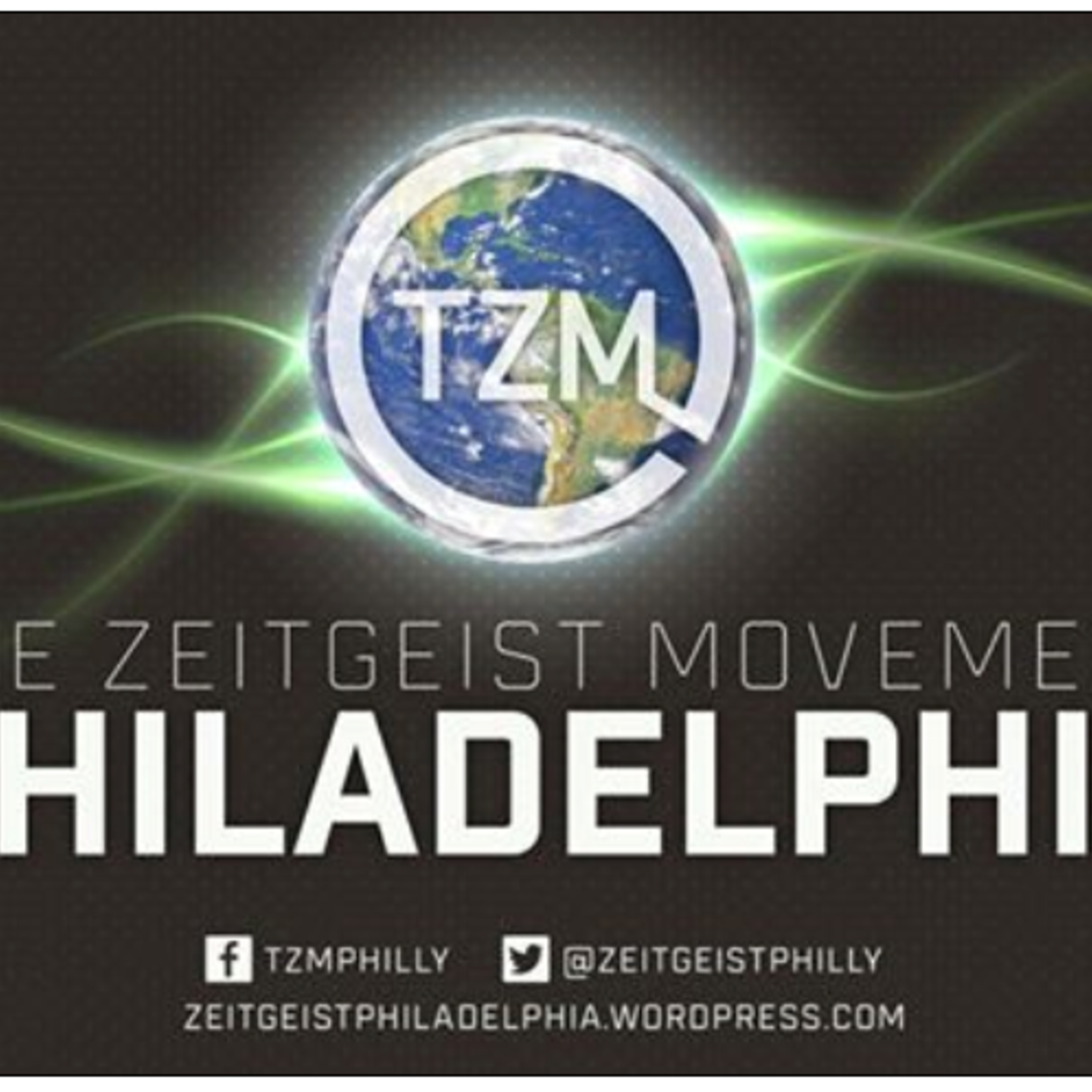Kinsella On LibertyAuthor: Stephan Kinsella
Austro-Anarchist Libertarian Legal Theory Language: en-us Genres: Education, Philosophy, Society & Culture Contact email: Get it Feed URL: Get it iTunes ID: Get it |
Listen Now...
KOL481 | Haman Nature Hn 200: 200th Episode Livestream Celebration!
Sunday, 8 February, 2026
Kinsella on Liberty Podcast: Episode 481. This is my appearance on Adam Haman’s podcast and Youtube channel, Haman Nature (Haman Nature substack), a special 200th Episode Livestream Celebration! It features regular hosts Adam Haman and Tyrone, and other previous guests (recorded Feb. 7, 2026; official episode: Replay of 200th Episode Livestream Celebration! | Hn 200). I and some other previous guests appeared. (( KOL478 | Haman Nature Hn 185: The Universal Principles of Liberty KOL469 | Haman Nature Hn 149: Tabarrok on Patents, Price Controls, and Drug Reimportation KOL461 | Haman Nature Hn 119: Atheism, Objectivism & Artificial Intelligence KOL456 | Haman Nature Hn 109: Philosophy, Rights, Libertarian and Legal Careers KOL432 | Haman Nature 0027: School Choice “Debate” KOL425 | Haman Nature Ep. 4: Stephan Kinsella dismantles “intellectual” property KOL423 | Haman Nature Ep. 2: Getting Argumentative )) Shownotes and transcript below. Inspired by Jeffrey Tucker, I decided to dress up. Adam's shownotes: This is a replay of the Feb. 7th, 2026 YouTube livestream of the Haman Nature 200th episode celebration event. Adam Haman and Tyrone the Porcupine Hobo were proud to be joined by Scott Horton, Stephan Kinsella, Doc Dixon, Brian O'Leary, Domenic Scarcella, Mark Maresca, Mark Puls, and Jason Lawler. Plus, fun, games, the premier of a Haman Nature Records music video, and much more! Enjoy! 00:00 — Intro. Technology is hard, we have a very rough start, but perseverance pays off! 01:08 — Banter and brilliance from our special guests on the situation in Minneapolis, Minnesota. 37:88 — Debuting our new game: A Warmonger Says What? 48:50 — Adam slooooowwwlly leads us into a nice intermission. 55:53 — And we're back! Premiering "The Devil is a Democrat" music video by Haman Nature Records! 1:08:40 — Banter and brilliance from our special guests on the recent Epstein files dump. 1:39:10 — What? two intermissions?! 1:45:09 — Adam makes a big podcasting "reveal"! Also, introducing our brand new series: "It's Always Anarchy in Philadelphia!", which leads into a brief discussion of economics — which is the point! 2:08:15 — Some closing banter, thoughts, comments, and testimonials. Plus, what's going on with Bitcoin, gold, and silver prices? Are these assets, or could they be money in the future? 1:10:55 — Outro. Thanks for watching Haman Nature, and here's to another 200 episodes! Shownotes (Grok) Opening & Technical Difficulties [3:02 – ~8:42] Hosts Adam Haymon and Tyrone struggle with StreamYard/YouTube live setup. Multiple failed starts, audio muting issues, and a full restart after realizing the stream isn't public. Guests (including Stephan Kinsella and Mark Maresca) briefly appear during troubleshooting. Take Two – Official Welcome & Guest Introductions [~8:42 – ~17:00] Successful restart. Adam and Tyrone celebrate episode 200 (take two). Guests introduced: Stephan Kinsella (dressed in full “libertard” regalia with Mises hat and pipe), Scott Horton, Mark Maresca (White Pill Box), Brian O'Leary (Natural Order podcast co-host), and later arrivals. Banter about episode counts, outfits, technical woes, and congratulations. Minneapolis / ICE Raids / Immigration Discussion [~17:00 – ~38:00] Tyrone (Minneapolis resident) gives local perspective on recent ICE incidents. Guests share views: Mark Maresca → white-pill take on accelerating public skepticism Scott Horton → partisanship, new footage reinforcing biases, panic in police shootings Stefan Kinsella → due process, nullification, decentralization, peaceful alternatives to force Brian O'Leary → economic incentives over coercion Heavy focus on Minneapolis events, state nullification, federal overreach, and libertarian principles. Viewer Comments, Guest Rotations & Banter [~38:00 – ~1:00:00] Reading sarcastic and positive YouTube comments from past episodes. Guests come and go (Scott Horton exits, Mark Polles / “Mark P” joins, Jason from If By Whiskey joins). More congratulations, plugs for guests’ shows/Substacks, merch mentions (shop.humanature.com), and light roasting. Game Segment: “A Warmonger Says What?” [~47:00 – ~1:00:00] World premiere game. Panel (Stefan, Mark M, Mark Mo, Brian) guesses who said infamous political quotes. Chat players compete for $25 Human Nature merch gift cards. Questions cover MTG, Trump/Biden gaffes, Rick Perry, Bernie/Obama/Hillary, etc. Winners announced later. Break, Ads & Music Video World Premiere [~1:00:00 – ~1:16:00] Short break with organic ads (Scott Horton Academy, Swan Brothers merch). World premiere of Human Nature Records parody music video: “The Devil is a Republican” (Grok-rewritten Tom MacDonald-style lyrics set to music by Tyrone). Full performance played. New Segment Debut: “It’s Always Anarchy in Philadelphia” [~1:56:00 – ~2:19:00] Brand new recurring segment announced. Uses clips from It’s Always Sunny in Philadelphia to explain Austrian/Misesian economic concepts. First clip: Season episode discussing couch rental interest, inflation, wages, and “nut.” Stefan Kinsella gives detailed breakdown: time preference, interest rates, monetary vs. price inflation, Fed manipulation, sound money, Bitcoin vs. gold, fractional reserve debates, free banking vs. Rothbardian views. Closing Thanks, Final Comments & Sign-off [~2:19:00 – 2:48:00] Guests give on-camera praise for the show (Mark Maresca, Brian O’Leary, Mark Polles, Dominic Scarcella, Stefan Kinsella). Brief Bitcoin/gold/silver/fiat collapse discussion. Final plugs, merch reminder, “The Devil is a Republican” video tease. Emotional thanks to guests and audience for 200 episodes. Ends with signature “Heat” send-off. Total runtime ≈ 2 hours 45 minutes (including breaks and music video). Episode highlights: technical comedy, deep libertarian discussion, game debut, parody music video premiere, and first episode of the new economics-through-pop-culture segment. Transcript (youtube; Grok assist) Human Nature – 200th Episode Celebration (Full Compiled Corrected Transcript – From Beginning to End) Spelling errors corrected, filler words like "uh" or "um" removed (without paraphrasing or altering meaning/structure), occasional topical descriptive headers added, speaker names when identifiable (or "[Unknown Speaker]" if not), timestamps after each header and speaker change. Names standardized: "Human Nature" / "Adam Haman" / "Stephan Kinsella". [3:02 – Opening Title & Initial Technical Chaos] Intro Voiceover Human Nature, a journey in search of a peaceful and prosperous society with human nature as a guide. Led by your host Adam Haman. [3:24] Adam Haman Hello. Isn't technology just hilarious? I guess so. [3:29] Tyrone You got big plans for your 200th episode celebration and then all of a sudden nothing works. [3:36] Adam Haman I still don't see it on my YouTube, but if you see it on yours, I believe somebody is seeing it somewhere. [3:42] Tyrone Yes, somebody is seeing it somewhere. Well, I guess it's just going to be you and me. [3:48] Adam Haman This is kind of how the last one was. Well, hey, we made it. Congratulations, sir. Even if nobody's seeing this, I don't know. [4:06] Tyrone We do have a couple of guests waiting in the waiting room. Maybe they know. But first, we allow some of these bozos on to come celebrate with us. Congratulations, sir. It's number 200. I didn't know if we would make it. Cheers, my friend. [4:23] Adam Haman When we started this little project two years ago, can you believe that? [4:29] Tyrone It's crazy. Oh, you're getting dinged. Ding-donged. Well, welcome everybody to the fantastic, fabulous, super califragilistic 200th episode of Human Nature. [4:41] Adam Haman Oh, wait. I can get my sound effects going. Yeah, I don't think we're live, my friend. [4:47] Tyrone Yeah, I don't think we are either. [4:53] Adam Haman Oh, this is just so silly. So Stefan and Mark, if you can hear us, apologies. Adam's a dumb [ __ ] when it comes to technology. [5:07] Tyrone Should we pop these fellas on here and just apologize to him? I mean, it's 12:12. Should we just cancel this whole nonsense? [5:13] Adam Haman No. Stefan Kinsella. [5:19] Stephan Kinsella Hi, Mark. [5:19] Mark Maresca Mark. Hey, guys. What's up? Congratulations, Adam. [5:25] Adam Haman Thank you. Hold it. We might have to redo this whole thing. [5:25] Tyrone Yeah, we're almost certainly going to have to redo this whole thing. I could show you. My YouTube studio thinks that we have a live stream. [5:38] Adam Haman It thinks it's happening. [5:48] Tyrone Oh, yeah. It thinks we've been going for 5 minutes, but nobody else thinks this. [5:57] Adam Haman Well, that's interesting. [5:57] Tyrone Mr. Kinsella, I know we've never met, but nice to meet you virtually, sir. I'm going to kiss your ass here in a second, but I kind of wanted to do it when we're actually going, so just pretend we've never seen each other five minutes prior to this. But I like the hat and the pipe. Very deerstalker. I'll start calling you Watson or something. [6:16] Stephan Kinsella Yeah, that is about the pipe. You look amazing. [6:22] Tyrone Oh, I can't hear you though. Are you muted? Who's muted, my friend? [6:30] Mark Maresca No, nobody's muted, but I can't hear Mark either. Mark, say something. [6:30] Mark Maresca Talking talking. [6:36] Tyrone Okay, Stephan, I can't. You are I can't hear stuff now. [6:43] Adam Haman Well, maybe nothing works. Maybe that's the Streamyard let you pick the mic and Oh, how about now? How about now? [6:51] Stephan Kinsella Yeah. Yeah, you're correct. How about now? My mic was muted. My mic, my Yeti was muted. [6:57] Tyrone I don't see anything on YouTube Studio, Adam, saying anything's going [7:03] Adam Haman Well, mine does. [7:03] Tyrone Really? Where are you? 7 seconds.




